 Tel/WhatsApp
Tel/WhatsApp



Waste agricultural plastic films present a significant challenge in modern farming. Various methods exist for their disposal, including granulation, incineration, composting, and pyrolysis. However, focusing on resource recovery during this process is crucial.
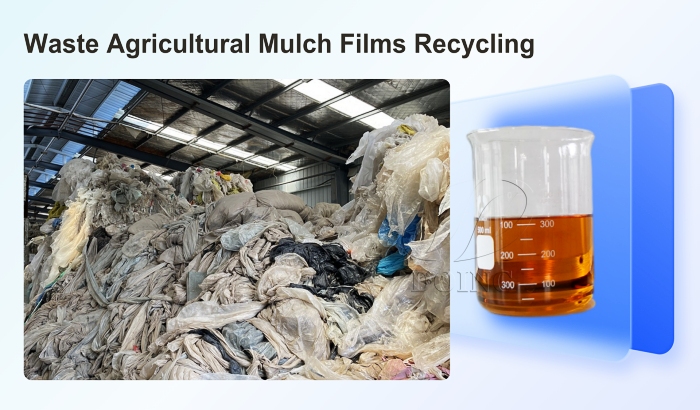 Waste agricultural plastic film recycling way-pyrolysis
Waste agricultural plastic film recycling way-pyrolysis
Here are five methods to managing waste agricultural plastic films for your reference to choose the most effective one:
1. Granulation
Collected films undergo sorting, washing, shredding, and pelletizing to produce recycled plastic pellets. These pellets can then be used to manufacture new plastic products such as buckets, basins, pallets, and agricultural water pipes. Many regions have dedicated collection points where farmers can deposit used films for recycling.
Limitations: The presence of impurities like cotton, straw, and soil in recycled films can affect the purity and quality of the final plastic pellets, making this method sensitive to feedstock contamination.
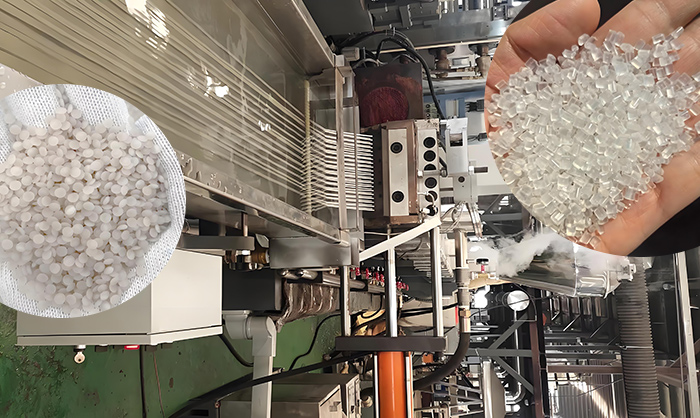 Waste plastic disposal and granulation
Waste plastic disposal and granulation
2. Incineration
Incineration converts waste agricultural plastic films into heat and ash. The recovered thermal energy can be utilized for energy saving and emission reduction. The ash can be used as landfill material or further processed for resource recovery. Incineration is an effective way to reduce the volume of waste agricultural plastic films.
Limitations: However, incinerating plastic films can generate harmful gases and thick black smoke, posing risks to the environment and human health. This method is generally not recommended unless carried out with specialized incineration equipment and advanced off-gas treatment facilities to minimize pollution.
3. Composting
For thinner, fragmented agricultural plastic films, composting is an option. When mixed with organic waste, the plastic films can gradually decompose by microorganisms during the composting process.
Limitations: Composting requires a significant amount of time and has specific conditions that need to be met for effective decomposition.
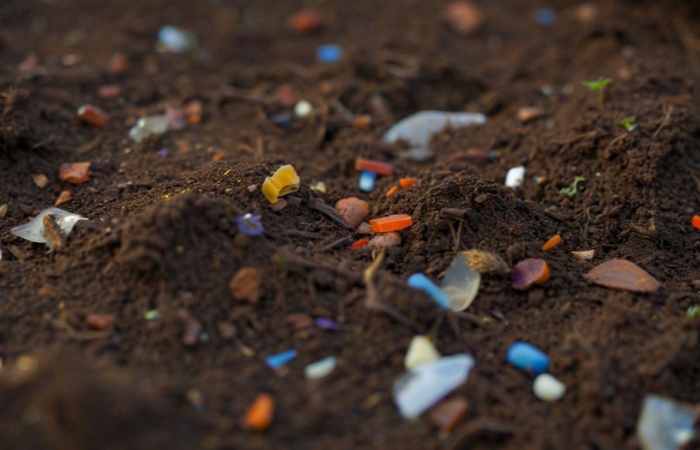 Waste plastic composting
Waste plastic composting
4. Microbial Degradation
This method utilizes microbial degradation technology. Microorganisms break down plastic films through their metabolic processes, eventually converting them into harmless substances. This approach is considered environmentally friendly and poses no harm to the ecosystem.
Limitations: The degradation speed is slow, and the technical requirements are complex.
5. Pyrolysis
Pyrolysis involves heating waste plastic films to 200-350°C under slightly positive pressure, in an oxygen-deficient or oxygen-poor environment. The long, stable molecular chains of synthetic polymers in the plastic films are broken down into lower molecular weight hydrocarbon compounds.
Waste agricultural plastic films processed via pyrolysis machine yield fuel oil, ash, and combustible gas. While the combustible gas can be consumed during the pyrolysis process, the fuel oil and ash have significant utility.
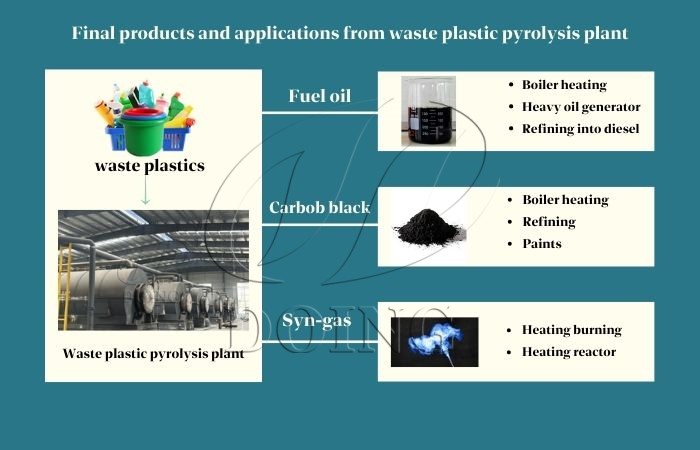 Waste agricultural plastic films recycling pyrolysis machine
Waste agricultural plastic films recycling pyrolysis machine
HENAN DOING's agricultural plastic films recycling pyrolysis machine can produce approximately 0.7 tons of fuel oil per ton of plastic film processed, with a heating value of around 42 MJ/kg. This fuel oil is widely used as heating fuel in boilers, steel mills, cement plants, and brick factories. Currently, the market price for one ton of plastic oil ranges from 600-786USD/MT. Its good transparency, light color, and sulfur-free composition also make it suitable for further refinement or deep processing, turning waste into valuable products diesel through pyrolysis oil distillation plant.
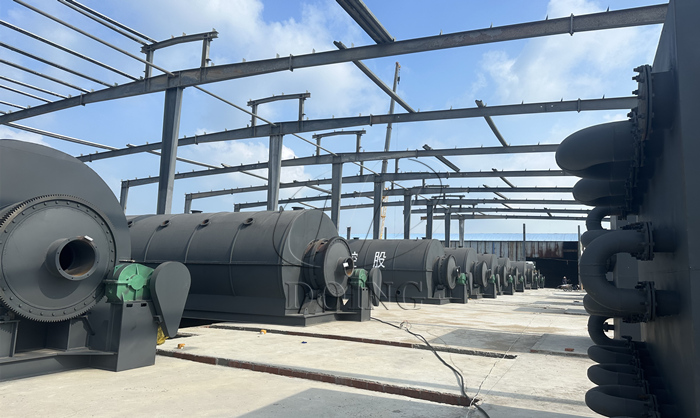 Waste plastic films recycling pyrolysis plant project
Waste plastic films recycling pyrolysis plant project
Compared to the feedstock limitations of plastic film recycling, the environmental concerns of incineration, and the technical challenges of composting and biodegradation, pyrolysis technology for agricultural plastic films offers a solution that not only reduces waste but also effectively extracts valuable products, promoting a circular economy. If you have large quantities of waste plastic agricultural mulch in need of processing, consider the benefits of DOING pyrolysis machine over simply relying on collection stations.